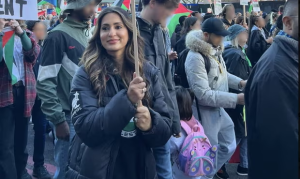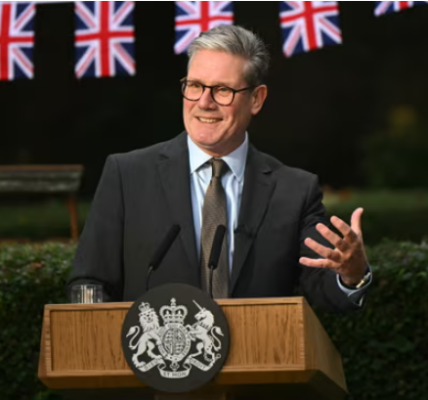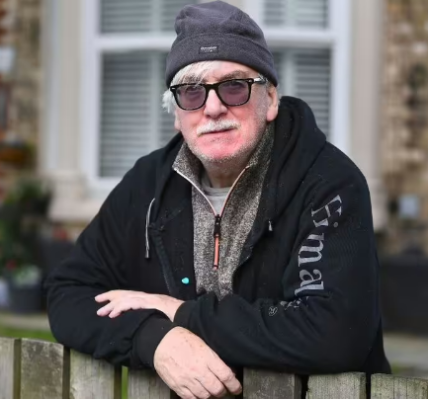Marieha Hussain attended a London march against the war in Gaza carrying a sign depicting Rishi Sunak and Suella Braverman as coconuts

The prosecutors said Marieha Hussain had ‘crossed the line between legitimate political expression and racial insult’. Photograph: X
A woman who held a poster depicting Rishi Sunak and Suella Braverman as coconuts during a London protest against Israel’s war in Gaza has gone on trial accused of a racially aggravated offence.
Marieha Hussain, 37, pleaded not guilty as her trial began at Westminster magistrates court on Thursday morning. Prosecutor Jonathan Bryan said the term “coconut” was a “well-known racial slur which has a very clear meaning”.
Hussain held the sign showing the former prime minister and home secretary placed alongside coconuts under a tree at a November 2023 pro-Palestine protest.
Bryan, opening the case, said: “There were people present who were likely to have been caused harassment, alarm and distress by seeing what was on that placard.”
He said the term “coconut” was a “well-known racial slur which has a very clear meaning” to the effect that “you may be brown on the outside, but you’re white on the inside. In other words, you’re a race traitor – you’re less brown or black than you should be.”
Bryan said Hussain, from High Wycombe, had “crossed the line between legitimate political expression” and moved into “racial insult”.
Defending Hussain, Rajiv Menon KC said the placard was a “political criticism” of Sunak and Braverman. Earlier this week, the former prime minister and home secretary were criticised in an official report for wrongly lambasting the Metropolitan police’s handling of pro-Palestinian protests.
“What she is saying is Suella Braverman – then home secretary, sacked two days after – was promoting in different ways a racist political agenda, as evidenced by the Rwanda policy, the racist rhetoric she was using around small boats,” said Menon.
“And the prime minister was either acquiescing to it or being inactive,” he added. “It was a political criticism of these two particular politicians.”
In a prepared statement read out to the court by the prosecution, Hussain said she had attended the pro-Palestine protest with her family. She said: “The march progressed very slowly and in the course we passed many police officers who did not suggest that anything provocative or disturbing was taking place.
“At no stage did anyone on the march suggest that the posters were an expression of hate to anyone in society.”
Hussain said the placard was in opposition to an “exceptional manifestation of hatred towards vulnerable or minority groups emanating from the home secretary and supported by the prime minister”. She added in the statement: “I find it astonishing it could be conceived as a message of hate.”
Speaking before the court, Metropolitan police communications manager Chris Humphreys said images come to the attention of the police service if the force’s social media account is tagged in the post. Humphreys said the Met “actively monitors” accounts that frequently post protest-related images.
Menon said the image of Hussain’s sign had been posted by an X account with the username Harry’s Place – “a secretive political blog headquartered in Washington DC that has a particular interest in opposing any criticism of the Israeli state”.
The account regularly posts images of demonstrators on Palestine Solidarity Campaign marches, including those with signs saying “Respect existence or expect resistance” and “Stop war crimes”.
When asked about the account, Humphreys replied: “I know Harry’s Place is an anonymous political blog.”
The trial continues.



